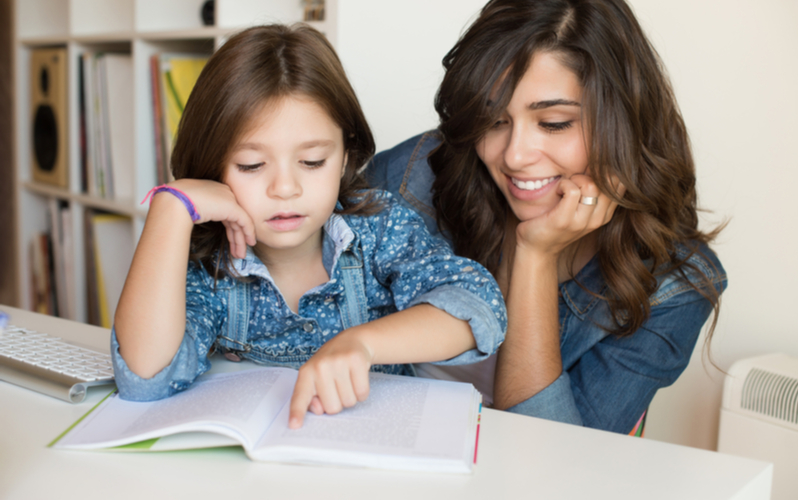Homeschooling is an education movement where parents educate their children at home instead of in school. Parents may choose to homeschool for any number of reasons. They may not be happy with area schools or they think that their children aren’t doing well in a traditional school setting. For some parents, it’s about having different religious beliefs or an unusual education philosophy that cannot be accommodated in a regular classroom.
The homeschooling movement was pioneered by people with very different beliefs. John Holt, a classroom teacher on the secular left, believed in something he called “unschooling,” or “learning by living.” Raymond Moore, a teacher and principal, along with his wife Dorothy, a reading specialist, were devout Seventh Day Adventists. They developed an educational system called the Moore Formula which depends on playtime and chores as much as it does on study. Holt and the Moores began writing about homeschooling as an alternative to the regular classroom in the 1970s. Today there are more than 2.3 million children who are being homeschooled in the United States. It is legal to homeschool children in all 50 states.
Homeschooling Requirements
The legal requirements for homeschooling differ depending on the state. Some states have no requirements at all. Other states require notification by the parents that they intend to homeschool their children. Then there are the states that want to assess the situation. Some of these states are lax in their assessment standards, while a few are quite strict.
Where assessments are done, children may be tested at regular intervals to make sure they’re keeping up with state standards of education. Parents may need to prove a certain level of education. Some parents will need to submit a portfolio or log of lessons learned over time.
Perhaps the most important qualification for homeschooling, is the desire to give it a try. Parents who are suited to the homeschooling process like to spend lots of time with their children, answering all their questions. They feel passionate about education. For these parents, the idea of homeschooling is not a passing fancy, but a serious commitment, they make sure to have all the equipment they need to make education fun for their kids, including Dry Erase Paint!

In most places, parents don’t need a teaching degree to homeschool their children. Children who have never gone to school can begin homeschooling once they reach school age. Their education must meet the standards of the state in which they live.
For kids who leave school to be homeschooled, the process is different. Parents must write a letter to the principal or local school superintendent, asking to withdraw the child from the current setting. The letter should state the parent’s intention to homeschool the child, going forward. After notification, parents can homeschool according to the guidelines of their local district.
State Funding
Most homeschooling parents pay for their children’s learning materials on their own. Some states offer the option of enrolling children in a state-wide program. The state may pay for learning resources as long as the parents and their children commit to meeting the state’s requirements for the program.
Networking
Homeschooling parents tend to be great at organizing and networking. Co-ops are a popular way to provide students with social opportunities, for instance for playing sports, having play dates, or hearing lectures. In a co-op, homeschooling families may group together for classes or activities.
How Homeschooling Works
Homeschooling families with children of various ages, may teach the same subject different ways to different children. A mother might teach two children about the American Revolution, but the assignments the children receive will be different, reflecting the individual child’s age and abilities. When children need to learn math, it may be important for one child to have one-on-one tutoring with the homeschooling parent, while another child goes over a different lesson in another room.
Sick Days?
When a homeschooling parent falls ill for a day or two, there’s no need to worry about kids falling behind. Homeschooling is nothing if not flexible! Pull the children into bed with you for reading practice. Take a nap and resume lessons later in the day. Remember that you have a certain number of hours and days of learning to log. You can always get the missing hours in on another day of the year. In traditional two-parent homes, the other parent can also pitch in with lessons when one parent is out of commission with a bad cold (or is suffering from burnout).
The Curriculum
As homeschooling becomes ever more popular, more resources and curricula have become available to homeschooling families. Parents have catalogs filled with lots of options, representing many different educational methods and approaches. Most parents will teach standard subjects like history and math, putting their own spin on lessons to personalize them for their child. This is what is so great about homeschooling: A parent knows his own child best and knows the right way to spark the child’s interest in a given topic. Homeschooling allows the parent to tailor-make the learning approach to suit a child’s specific interests and abilities.

The Homeschooling Schedule
Homeschooling, again, is flexible, which is one of the things that makes it so attractive. The schedule for the homeschooling day is whatever works best for the family. A parent who knows her child is sleepy in the morning, and lively at night, may choose lazy mornings and long hours of study at night. A parent also doesn’t have to end a class just when a child is excited about the subject matter. The lesson can continue until the curious student is satisfied, even if it’s getting late.
The homeschooling family will structure each day based on the educational philosophy it chooses to adopt. All of the traditional and alternative education philosophies that are available for the regular classroom, are also available for the homeschooling parent. Such methods would include Montessori, the democratic classroom, and Waldorf, among many others. The beauty of homeschooling, is the freedom to mix and blend education philosophies and methods. One child in a homeschooling family may do well with interest-led learning, while her sibling does best learning in parent-directed units.
The Homeschooling School Year
In some states, homeschooling parents have to ensure their children complete 180 school days. What’s nice is that homeschooling parents aren’t stuck to the usual public school calendar. Kids can complete their learning days and take breaks whenever it is convenient.
Homeschooling allows children to progress in their learning according to their own pace, independent of the calendar. This arrangement seems to be working out quite well. One study found that the average homeschooler out performs his counterpart in the public school system by 30 to 37 percentile points in every subject. It’s also true that homeschoolers may fall behind public school students in some subjects, even as they pull ahead in others.

Homework And Grades
There is often less of a need for homework for the homeschooled student. With fewer children competing for the teacher’s attention, lessons are more focused. Lessons can be completed in a shorter span of time, with no need for homework to finish up where the teacher leaves off.
Some homeschooling families have the students take tests. Sometimes this is done with the aid of computer programs, to help maintain objectivity. Objectivity, on the other hand, isn’t as much of an issue for the homeschooling family as one might think. One of the main benefits of homeschooling is that it allows for the child to learn at his or her own pace. Learning is accomplished when the child masters the material. That’s as opposed to following the pace of a set curriculum, the classroom, or a teacher.
Homeschooling: Standardized Testing
Some states require homeschooled students to take standardized tests at specific points in learning. Other states leave it up to the parents. Many homeschooling families do make sure their kids take these tests to keep track of their progress. Other families feel there is no need for testing, at least not until high school. At that point, a student will want to have some grades to show on college applications by going through college prep. And yes, even Ivy League schools are now taking—and even recruiting—homeschooled applicants.
Found what you just read useful? Why not consider sending a donation to our Kars4Kids youth and educational programs. Or help us just by sharing!
